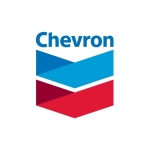ST. LOUIS & SAN RAMON, Calif.–(BUSINESS WIRE)–Bunge (NYSE: BG) and Chevron’s Renewable Energy Group Inc., a subsidiary of Chevron Corporation (NYSE: CVX), acquired Chacraservicios S.r.l., based in Argentina, from the Italian-based Adamant Group. This latest investment in novel seeds adds a new oil source in Bunge and Chevron’s global supply chains and will help both companies meet the growing demand for lower carbon renewable feedstocks. Terms of transaction were not disclosed.
“Across our business, our decision-making process includes a focus on carbon. Investing in this new oilseed crop is another step towards our goal of expanding lower carbon intensity feedstocks to help meet the growing demand for renewable fuels,” said Fernando Candia, Bunge’s Vice-President Carbon Solutions. “As a leader in oilseed processing, we are pleased to bring innovative crop solutions to farmers and process it into sustainable solutions for consumers.”
Founded in 2003, Chacraservicios was bought by Adamant Group, which invested through first-stage development of the company. Chacraservicios is focused on the cultivation of Camelina Sativa, a cover crop with high oil content, that benefits farmers, consumers and the environment. Bunge plans to provide Chacraservicios crush tolling and management services.
“Agricultural innovation is powering renewable fuels development around the world, and opportunities like this are helping Chevron expand our portfolio of affordable, reliable and lower carbon fuels,” said Natalie Merrill, senior vice president for business development with Chevron Renewable Energy Group. “Together with Bunge, Chevron’s Renewable Energy Group looks forward to working with the Chacraservicios team on meal and oil processing innovations.”
The companies expect to continue to explore opportunities to increase their participation in the development of next generation, renewable fuels and advance a lower carbon energy future.
About Bunge
At Bunge, our purpose is to connect farmers to consumers to deliver essential food, feed and fuel to the world. With more than two centuries of experience, unmatched global scale and deeply rooted relationships, we work to put quality food on the table, increase sustainability where we operate, strengthen global food security, and help communities prosper. As the world’s leader in oilseed processing and a leading producer and supplier of specialty plant-based oils and fats, we value our partnerships with farmers to improve the productivity and environmental efficiency of agriculture across our value chains and to bring quality products from where they’re grown to where they’re consumed. At the same time, we collaborate with our customers to create and reimagine the future of food, developing tailored and innovative solutions to meet evolving dietary needs and trends in every part of the world. Our Company is headquartered in St. Louis, Missouri, and we have more than 23,000 dedicated employees working across approximately 300 facilities located in more than 40 countries.
About Chevron
Chevron is one of the world’s leading integrated energy companies. We believe affordable, reliable and ever-cleaner energy is essential to enabling human progress. Chevron produces crude oil and natural gas; manufactures transportation fuels, lubricants, petrochemicals and additives; and develops technologies that enhance our business and the industry. We aim to grow our traditional oil and gas business, lower the carbon intensity of our operations and grow new lower carbon businesses in renewable fuels, hydrogen, carbon capture, offsets and other emerging technologies. More information about Chevron is available at www.chevron.com.
CAUTIONARY STATEMENTS RELEVANT TO FORWARD-LOOKING INFORMATION FOR THE PURPOSE OF “SAFE HARBOR” PROVISIONS OF THE PRIVATE SECURITIES LITIGATION REFORM ACT OF 1995
This news release contains forward-looking statements relating to Chevron’s operations and energy transition plans that are based on management’s current expectations, estimates and projections about the petroleum, chemicals and other energy-related industries. Words or phrases such as “anticipates,” “expects,” “intends,” “plans,” “targets,” “advances,” “commits,” “drives,” “aims,” “forecasts,” “projects,” “believes,” “approaches,” “seeks,” “schedules,” “estimates,” “positions,” “pursues,” “progress,” “may,” “can,” “could,” “should,” “will,” “budgets,” “outlook,” “trends,” “guidance,” “focus,” “on track,” “goals,” “objectives,” “strategies,” “opportunities,” “poised,” “potential,” “ambitions,” “aspires” and similar expressions are intended to identify such forward-looking statements. These statements are not guarantees of future performance and are subject to certain risks, uncertainties and other factors, many of which are beyond the company’s control and are difficult to predict. Therefore, actual outcomes and results may differ materially from what is expressed or forecasted in such forward-looking statements. The reader should not place undue reliance on these forward-looking statements, which speak only as of the date of this news release. Unless legally required, Chevron undertakes no obligation to update publicly any forward-looking statements, whether as a result of new information, future events or otherwise.
Among the important factors that could cause actual results to differ materially from those in the forward-looking statements are: changing crude oil and natural gas prices and demand for the company’s products, and production curtailments due to market conditions; crude oil production quotas or other actions that might be imposed by the Organization of Petroleum Exporting Countries and other producing countries; technological advancements; changes to government policies in the countries in which the company operates; public health crises, such as pandemics (including coronavirus (COVID-19)) and epidemics, and any related government policies and actions; disruptions in the company’s global supply chain, including supply chain constraints and escalation of the cost of goods and services; changing economic, regulatory and political environments in the various countries in which the company operates; general domestic and international economic, market and political conditions, including the military conflict between Russia and Ukraine and the global response to such conflict; changing refining, marketing and chemicals margins; actions of competitors or regulators; timing of exploration expenses; timing of crude oil liftings; the competitiveness of alternate-energy sources or product substitutes; development of large carbon capture and offset markets; the results of operations and financial condition of the company’s suppliers, vendors, partners and equity affiliates, particularly during the COVID-19 pandemic; the inability or failure of the company’s joint-venture partners to fund their share of operations and development activities; the potential failure to achieve expected net production from existing and future crude oil and natural gas development projects; potential delays in the development, construction or start-up of planned projects; the potential disruption or interruption of the company’s operations due to war, accidents, political events, civil unrest, severe weather, cyber threats, terrorist acts, or other natural or human causes beyond the company’s control; the potential liability for remedial actions or assessments under existing or future environmental regulations and litigation; significant operational, investment or product changes undertaken or required by existing or future environmental statutes and regulations, including international agreements and national or regional legislation and regulatory measures to limit or reduce greenhouse gas emissions; the potential liability resulting from pending or future litigation; the company’s future acquisitions or dispositions of assets or shares or the delay or failure of such transactions to close based on required closing conditions; the potential for gains and losses from asset dispositions or impairments; government mandated sales, divestitures, recapitalizations, taxes and tax audits, tariffs, sanctions, changes in fiscal terms or restrictions on scope of company operations; foreign currency movements compared with the U.S. dollar; higher inflation and related impacts; material reductions in corporate liquidity and access to debt markets; the receipt of required Board authorizations to implement capital allocation strategies, including future stock repurchase programs and dividend payments; the effects of changed accounting rules under generally accepted accounting principles promulgated by rulesetting bodies; the company’s ability to identify and mitigate the risks and hazards inherent in operating in the global energy industry; and the factors set forth under the heading “Risk Factors” on pages 20 through 26 of the company’s 2022 Annual Report on Form 10-K and in subsequent filings with the U.S. Securities and Exchange Commission. Other unpredictable or unknown factors not discussed in this news release could also have material adverse effects on forward-looking statements.
Contacts
Bunge News Bureau
Bunge Limited
914-272-0297
Ross Allen, Chevron External Affairs
[email protected]





